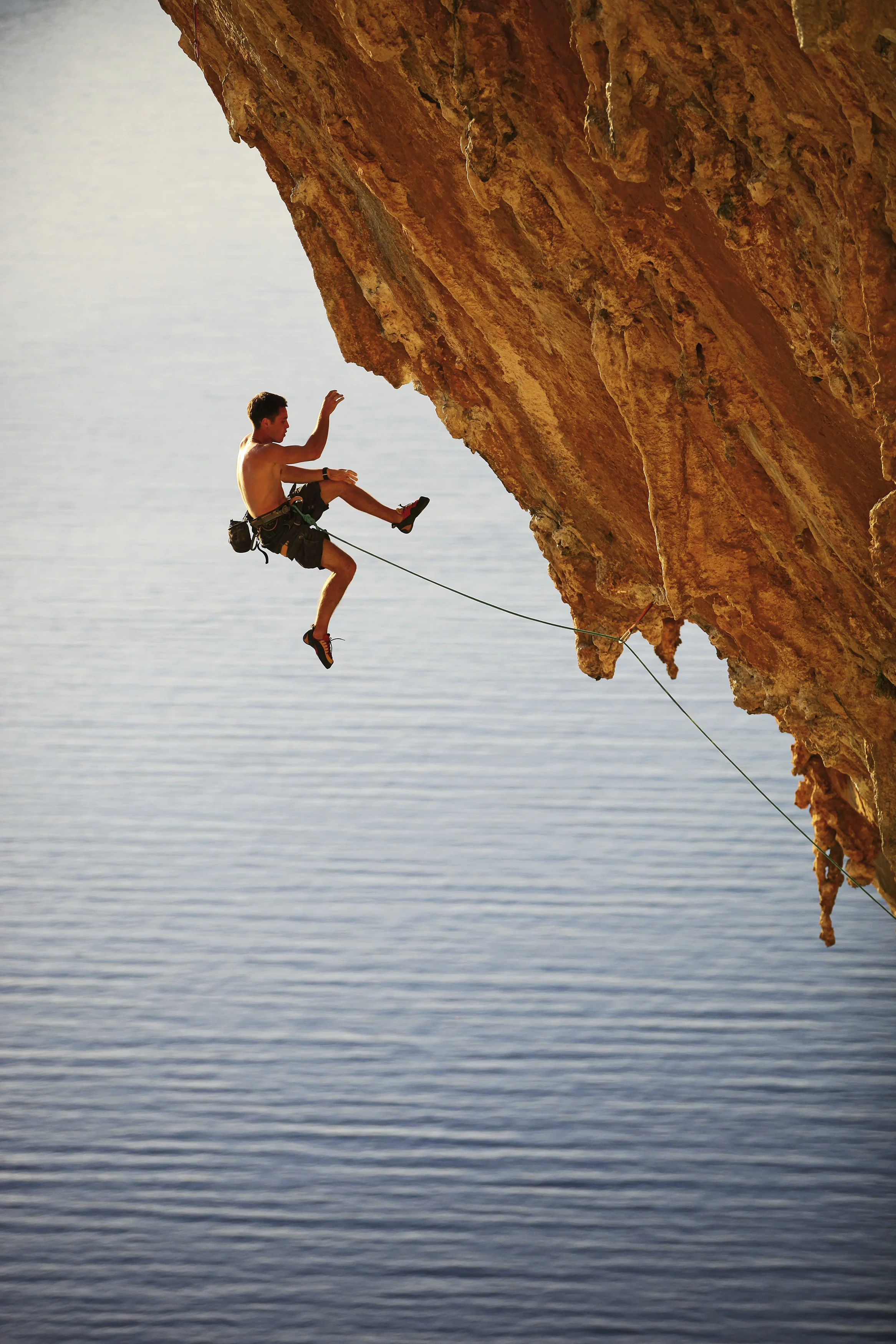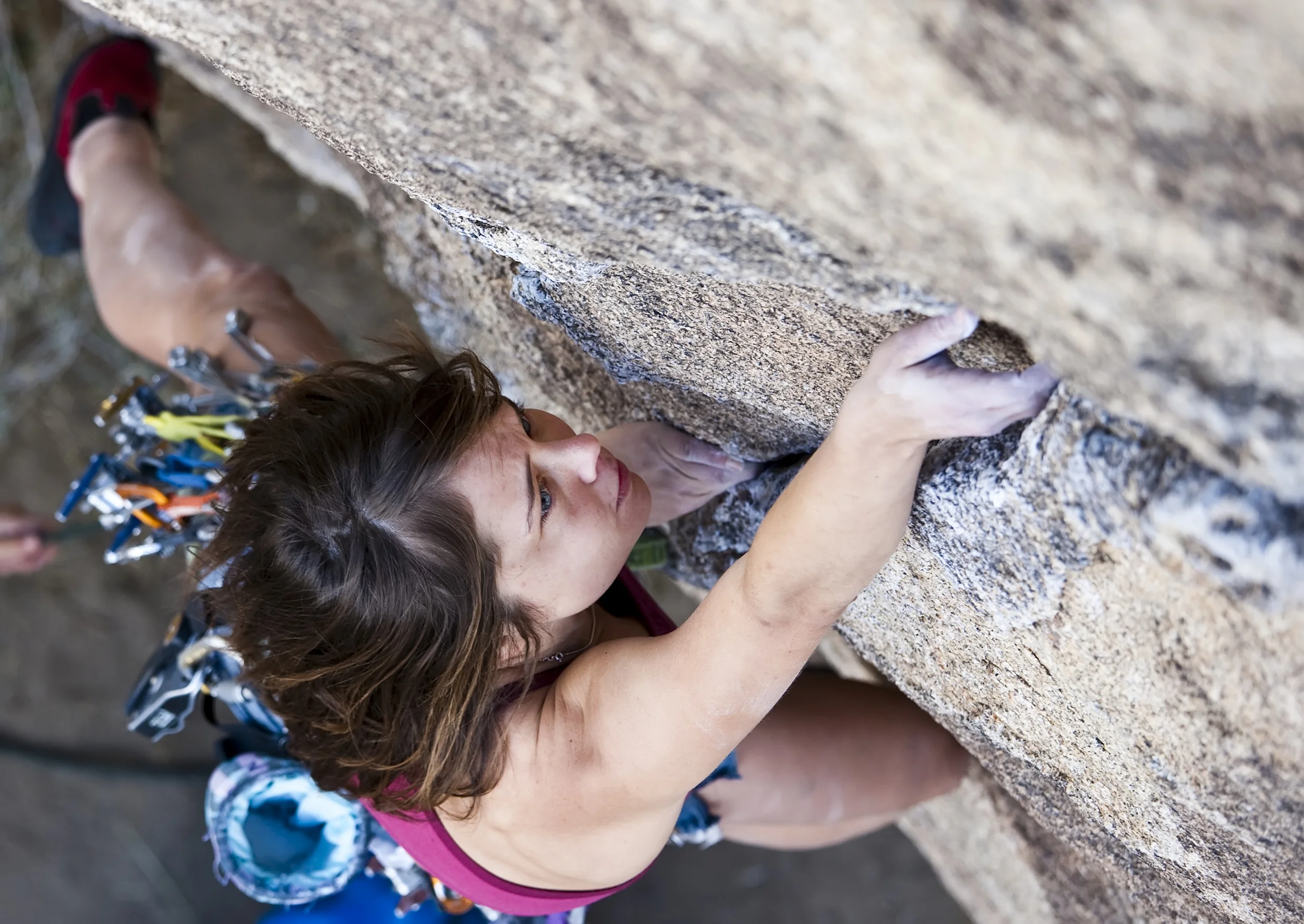There are many things to love about rock climbing. It could be compared to yoga or dancing in its intense engagement of core strength and flowing sequences of rhythmic movement. It gets people out in nature and in touch with the physical world. And it forms social bonds through shared challenge and adversity, as well as by people just getting together and having some good, old-fashioned, adrenaline pumping fun.
Like many sports, rock climbing engages both body and mind, and therefore promotes both physical and psychological development. Arguably, though, rock climbing exercises the mind more than many other sports, primarily due to the element of danger.
To start with, countering the negative effects of fear requires a high degree of mental self-control. On top of this, the severe consequences of potential mistakes necessitate high levels of focus and enhanced concentration.
Don't Panic!
Fear reduces performance in many aspects of life. In rock climbing, this is especially clear. In the most extreme instance, it can stop someone from even facing a challenge and getting off the ground. Once off the ground, it’s common for climbers to hold on too tightly and expend far too much strength and energy because of a fear of falling.
This becomes exaggerated if the climber starts to panic or ‘flap’. When the panic sets in, actions become desperate and disordered. The climber thrashes about inefficiently, and performance is severely compromised.
The irony is that fear in these situations is entirely counterproductive. Although fear has evolved to help us avoid danger, it actually makes it more likely for us to fall and hurt ourselves. So to really function effectively it’s necessary to engage the higher mental faculties to put a check on this instinctive response. Climbers need a high degree of mental self-control.
In a way, you could see climbing as parallel to a whole host of complex situations in modern life that the simple instincts never adequately evolved to encompass.
Stay Sharp!
The potential danger in rock climbing means it demands a high level of focus and mental acuity. This is epitomised by free-solo climbing, where a person ascends a cliff without a rope and is totally exposed to the dangers of falling. Clearly, one lapse of concentration or one wrong move can have truly grave consequences.
Contrary to what most people might expect, free-solo climbers are rarely motivated by simple bravado. In fact, they more often report being drawn to the sport by the deeper mental state it instils, what many would even call a sense of spirituality.
Most people don’t need to go to the extreme of free solo climbing to experience a similar state of mind. Especially for the uninitiated, top roping at a gym might well be enough.
In today's world we’re often far removed from a direct concern with base issues like mortality. And really it’s a good thing if we don’t have to fear death everyday! However, it means that the mind can become occupied by many relatively trivial or inconsequential concerns instead.
The acute awareness of danger in climbing puts things into perspective. Life is simplified and the unimportant issues dissolve into insignificance. It can bring people back in touch with core values by reducing their existence to the things that really matter. When climbing our full concentration is almost forced onto a simple, singular concern: the importance of living.
The Way of Zen
In a lot of ways these aspects of climbing promote a presence of mind similar to meditation. Buddhists often emphasise the quality of ‘equanimity’, which is basically the ability to maintain mental composure, even in the face of adversity. Equanimity involves being fully aware of one’s surroundings, yet remaining cool, calm and collected. It requires an intense focus on the present, undistracted by the worries and anxieties of the past or future. It means being free of the mental chattering of the ego or self.
Western Psychology has integrated these ancient Buddhist themes into the practice known as ‘Mindfulness’, which has seen huge success and popularity in dealing with the stresses and anxieties of the modern world.
Although I’m not suggesting that every climber is in fact a Zen master, rock climbing does provide an intense context for psychological growth. Overtly facing one’s fears encourages the development of skills and strategies for controlling one’s mind, and being exposed to danger fosters the ability to focus and perform, even under extreme pressure.
These are all invaluable qualities to possess on any of life’s journeys, whether on the career path, the athletics track, or the road to enlightenment.




